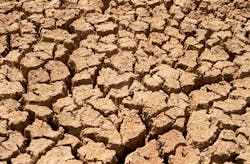Guest column: Drought forces beverage companies to find new ways to preserve water
By Reggie Prime & John Burns
FLORHAM PARK, NJ, NOVEMBER 13, 2016 -- There are enormous environmental challenges facing the beverage industry, including drought in many parts of the country. There are thousands of manufacturing plants across the country -- both big and small. These facilities, on average, require between 50,000 and 250,000 gallons of water each day to make their products.
But when a beverage company cannot access enough water to make its product, such as during drought conditions, serious problems occur. We are now working closely with beverage companies on methods to preserve this critical resource and to demonstrate to their host communities that they are maximizing operational efficiency. No one can expect a factory to leave water valves open for no apparent reason, for example, at a time when residents are being told they can only water their lawn every other Saturday.
Wastewater that cannot be treated for reuse still has many uses at a plant, from irrigation, for mopping floors, for filling retention pools or even for toilet water. We recommend smart projects that respond directly to drought. Water conservation practices are a long-term investment that will continually pay dividends and ensure a consistent output of product, no matter the weather conditions.
Not only does management need to focus on new water-saving technologies, they also need to look at employee behavior, standard operating procedures and overall mindset. If a valve is leaking, it needs to be promptly fixed. If manufacturing is not at full throttle, perhaps there is less need for water volume and pressure. Employee training is a critical component in the overall effort to reduce the number of daily gallons used and improve overall process.
Water, which is the most valuable asset for a beverage company, must be preserved in every way. Wastewater must be treated to levels for reuse, and management must recognize that ongoing droughts only lead to heightened restrictions and more stress on production. All beverage companies need a sustainability plan, for now and always, to protect their enormous investment.
About the Authors: Reggie Prime and John Burns are the National Industrial Wastewater and Water Treatment Directors at Matrix New World.
